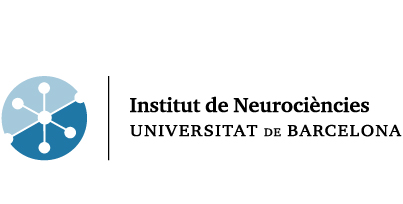JOSEP MARCO PALLARÉS
Position: Professor Agregat interí
Contact details
Dr. Josep Marco Pallarés
Department of Basic Psychology
Faculty of Psychology, Edifici de Ponent, Passeig de la Vall d’Hebron 171
08035 Barcelona (Spain)
0034-933125156
josepmarco (at) ub.edu
Research Interests
The goal of our research line is the study of the neural mechanisms involved in human reward processing. We are specially interested in understanding how the brain creates prediction on future events and how it computes the difference between real and expected outcomes (prediction error). We aim to uncover how this computation is used to adapt the behavior, with particular interest in the study of brain oscillatory activity, which is a key neural mechanism in integrating information from distant brain areas.
Our second main interest is understanding the difference in brain processing of different types of rewarding stimuli, with special interest in music as one of the most important source of pleasure for most of human beings. Music has been present in all human cultures since prehistory, although it is not associated with any apparent biological advantages (such as food, sex, etc.) or utility value (such as money). However the exact mechanisms explaining why we do like music and individual differences in music reward are still unknown. We are specially interested in a condition called “music specific anhedonia” which describes people who do not find music pleasurable, but have interest in other forms of reward (food, sex, money, exercise). The existence of this condition indicates that the different types of stimuli might access to the reward system using different routes. We propose that these different accesses are crucial in understanding certain pathologies that are specific from one type of stimuli (such some additions, and we aim to uncover them using different neuroimaging techniques (structural and functional MRI and EEG).
Current Research Lines
- Reward processing
- Oscillatory activity
- Learning
- Executive Functions
Technologies / methods
- EEG, event-related potentials, oscillatory activity, wavelet
- Functional Magnetic Ressonance Imaging
Highlighted publications
· Mas-Herrero E, Ripollés P, HajiHosseini A, Rodríguez-Fornells A, Marco-Pallarés J. (2015). Beta oscillations and reward processing: Coupling oscillatory activity and hemodynamic responses. Neuroimage. 119:13-19.
· Alicart H, Cucurell D, Mas-Herrero E, Marco-Pallarés J. (2015). Human oscillatory activity in near-miss events. Soc Cogn Affect Neurosci. 10:1405-1412.
· Marco-Pallarés J, Münte TF, Rodríguez-Fornells A. (2015). The role of high-frequency oscillatory activity in reward processing and learning. Neurosci Biobehav Rev. 49:1-7.
· Mas-Herrero E, Zatorre RJ, Rodriguez-Fornells A, Marco-Pallarés J. (2014).Dissociation between musical and monetary reward responses in specific musical anhedonia. Curr Biol. 24:699-704.
· Mas-Herrero E, Marco-Pallarés J. (2014). Frontal theta oscillatory activity is a common mechanism for the computation of unexpected outcomes and learning rate. J Cogn Neurosci. 26:447-458.



